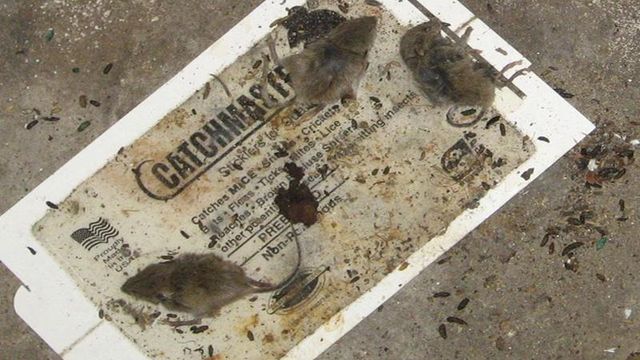WRAL Investigates
Inspectors found rats, insects, other problems in food plants
North Carolina vendors can be directed to correct food-safety violations at their establishments, but sometimes they have no control.
Posted — UpdatedRALEIGH, N.C. — Since August, inspectors with the North Carolina Department of Agriculture's Food and Drug Protection Division have sent letters to 35 grocery stores, bakeries and food plants directing them to correct both minor and serious issues involving food products.
Issues ranged from improperly labeled containers to out-of-date infant formula to mice decomposing beneath store shelves.
In some cases, though, vendors have no control over the food they use or sell. Sometimes, it's their suppliers that bring in problems.
Ben Chapman, a food safety extension specialist at North Carolina State University, points to the recent nationwide salmonella outbreak that has led to the recall of thousands of products containing peanut butter and peanut butter paste processed from one company.
A Kellogg's plant in Cary is among the companies that purchased the peanut ingredients. Through no fault of its own, it has had to stop production to clean its facility.
"Looking back, I think it shows the complexity of our food system that we currently live with," Chapman said.
With 9,000 grocery stores, bakeries and food plants to inspect, the Department of Agriculture says it is a struggle to fight contamination risks.
Joe Reardon, director of the food and drug protection division, says it is one of the agency's biggest fears that something like the salmonella outbreak could originate in North Carolina.
"It is a concern we deal with every day," Reardon said. "The most important thing is prevention."
Last year, 42 grocery stores, bakeries and plants closed after inspections, and the division seized and destroyed 189,000 pounds of potentially contaminated foods.
According to an August 2008 letter to the Mi Ranchito store and tortilla manufacturing facility in Alamance County, inspectors found rat droppings, a gnawed package and a dead rat under bags of chips. (View responses to the inspection reports.)
The agency seized $10,000 in goods from the facility, and the business closed.
Reardon says evidence of rodents poses public health consequences because they can carry viruses.
"We are the last step between the product and the consumer," Reardon said.
At other production facilities, according to state records, inspectors found a beetle problem at a Tyson Foods plant in Sanford in October. According to the Sanford Chamber of Commerce, the plant makes tortillas for Taco Bell restaurants east of the Mississippi River. Tyson's last inspection, in December, found that the facility was in compliance.
Wanchese Fish Company, on the coast, was notified in August of code violations when an inspector saw an employee smoking while de-heading shrimp. A letter to the company indicates beverages, including beer, were consumed in the same work area. Follow-up inspections showed the problems were resolved.
Even the cleanest of places can encounter a problem, however, because they are bringing in supplies from the outside.
Jan Matthews-Hodges, president of The Pound Cake Company in Benson, says a supplier sparked a temporary pest problem at her wholesale bakery. State inspectors found insects in a number of ingredients as well as in a storage area, according to an Oct. 3 letter.
The wood pallets under ingredients delivered by tractor-trailer appeared to be the carriers of beetles, Matthews-Hodges said. A follow-up report shows the facility is now problem-free.
But Matthews-Hodges says she isn't taking any chances. The pallets no longer come into the building.
"What those companies ask of their suppliers is one of those keys to getting to that food-safety culture," NCSU’s Chapman said.
• Credits
Copyright 2024 by Capitol Broadcasting Company. All rights reserved. This material may not be published, broadcast, rewritten or redistributed.






